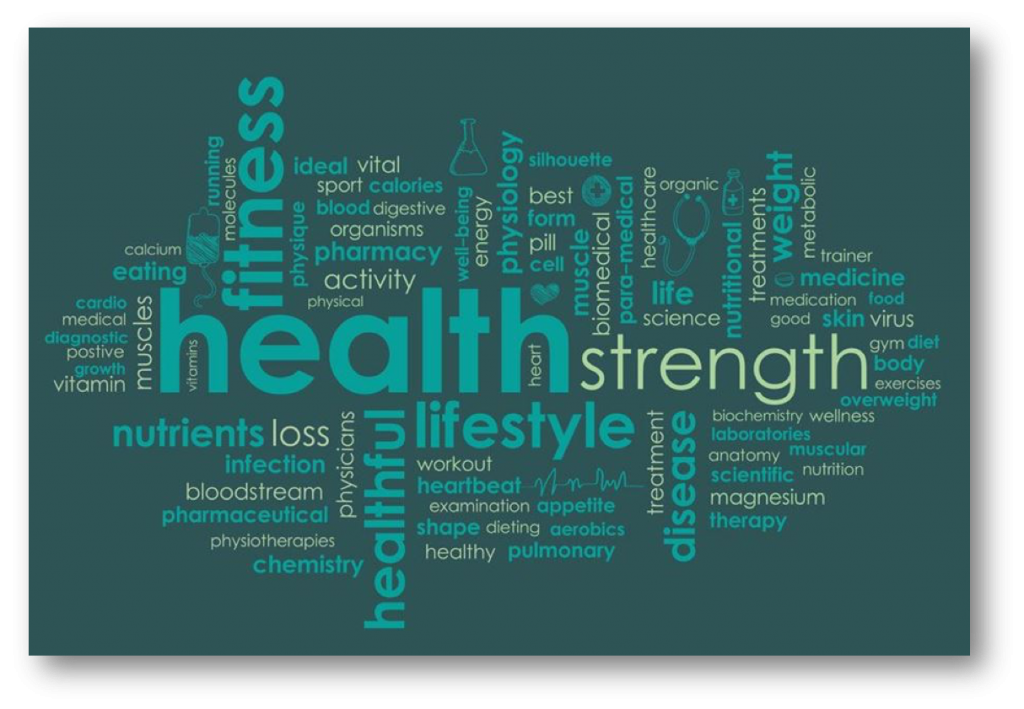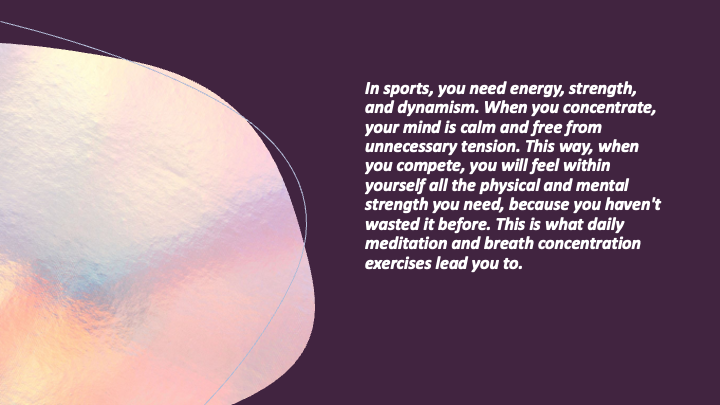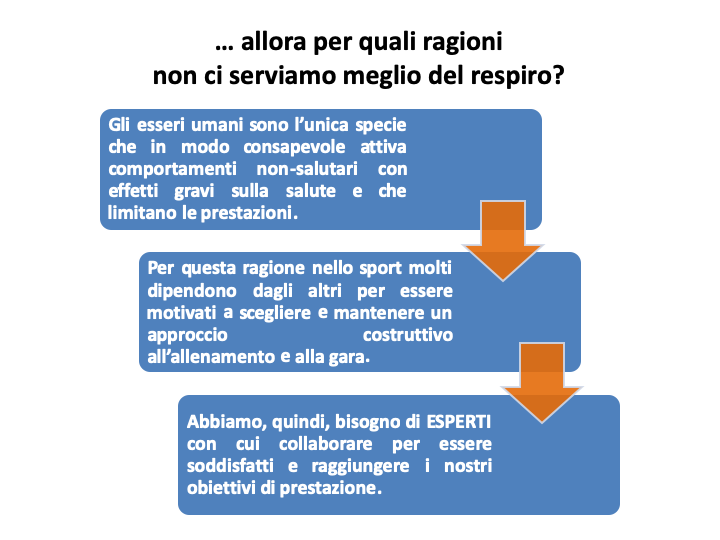Tag Archive for 'respiro'
As children, we learn to use cutlery, and so we will continue to do for the rest of our lives, never having to think about it again and never making a mistake.
The same goes for breathing, which is an automatic activity.
In attention training, however, we learn to focus on breathing, which is actually a useless activity because breathing is, as mentioned, an automatic process.
Precisely because it is an automatic activity it is however difficult to focus on breathing, we are not endowed with this ability, it is useless since we cannot not breathe.
But learning to do it, we learn to be aware and to guide an automatic process and, therefore, according to Paul Ekman we create new neural pathways, thanks to which we keep under control what happens at an unconscious level. and understand the automatic nature of emotions.
Consequently, the more time we devote to that breathing training, the greater our ability to control our emotions.
You can perform any activity
to promote well-being and develop skills
to train and to compete
but
every motor, sport and mental action is regulated by our breath.
and if I breathe badly, I won’t get the results I train for.
“As long as I breathe I hope,” Cicero said, today we could translate it into “as long as there is life there is hope,” more brutal but equally true. The coronavirus affects precisely this capacity that is at the basis of the physiological and psychological needs of living beings. You may not drink or eat for a few days, but you can’t breath for a few minutes if you are not a champion of underwater apnea. Correct breathing is at the base of self-control and the stresses of our daily life determine as a first negative effect our own breathing problems. Fear makes us block our breath, anger hates it to allow us to scream at someone, sadness reduces it to a trickle of air that goes in and out and anxiety makes us breathe in a shallow and superficial way. Breathing reflects our level of physical fitness and well-being and one of the effects of this new virus is to block it, making assisted breathing necessary in many cases. Mario Garattini, founder of the Mario Negri Pharmacological Research Institute, MIlano, said that “everything will depend on us, on our ability to avoid contagion. Let’s adhere to the dispositions. If everyone had adequate lifestyles and there was adequate prevention, perhaps we would be more resistant”.
This awareness, combined with the worldwide spread of the coronavirus and its devastating effects, should have frightened people enough to never leave their homes again, motivating them to respect the rules that have been spread and whose implementation is mandatory. Nevertheless, thousands of people have continued to travel throughout our country and the police have fined more than 2000 people for violating the restrictive rules of the government decree. What are the reasons for this behaviour? Superficiality, too positive approach to the problem, anxiety and a lack of habit of following the rules. Superficiality is a kind of magic thought, in which people think that the coronavirus is a problem that affects others, such as the elderly and sick, is a way to protect themselves from feelings of sadness in the short term. These people deny the existence of the problem and, therefore, engage in behaviour to escape from their reality. A second type of attitude is people who have an approach not mediated by reality and that is too positive, such as those who thought at the beginning of the spread that it was little more than a flu. They are individuals who live under the illusion of positive short-term solutions. A bit like those who start a diet or want to quit smoking and are confident that they will succeed just because they have made this decision, they are illusory forms of thinking so that at the first obstacles people give up following the new rules they have given themselves because it is too difficult. In the case of the coronavirus the problem manifests itself in the difficulty in maintaining the rules of physical distancing from other people and then they go out, take a walk with friends and take their children to play in the gardens. Similar for the effects but different in reasons is the approach of those who feel angst in staying at home. They perceive themselves as prisoners, feel violated in their freedom of movement and live this condition in a claustrophobic way. To overcome it the only solution in going outside. Finally, there are those who live reactively to the rules, have an attitude of eternal adolescents fighting against the norms of the adult world. They find it difficult to make the rules their own, which in this case are mandatory, and to develop a pluralistic concept of social coexistence, based not only on their rights but also on their duties towards the community.
These are some possible interpretations of behaviours that in a period of world crisis like the one we are experiencing and of upheaval of our daily life can explain the actions of the many who seem not to want to adapt to the new rules.
 “As long as I breathe, I hope.”
“As long as I breathe, I hope.”
(Cicero)
… reciting pieces of a trial in a court on a steep climb learned to pronounce the maximum number of words with a single exhalation.
He trained himself to speak in a medium tone that could be heard at 50 paces. Never bend your neck, don’t move your shoulders. The eyes must always follow the gesture unless you have to reject an eventuality. To use your fingers, bend your middle finger towards your thumb, extending the other three.
10 good reasons to learn to take a deep breath
- improves self-control in stress situations
- improves the management of physical and mental fatigue
- first action to take when you want to relax
- precedes the visualization of a technical or competition action
- reduces the mental tension and stimulates effective thoughts
- promotes muscle stretching during this phase of training
- reduces impulsive verbal responses
- facilitates immediate recovery after a high intensity exercise
- further deepens the focus on the task
- reduces pre-race or competitive activation if it’s the case







